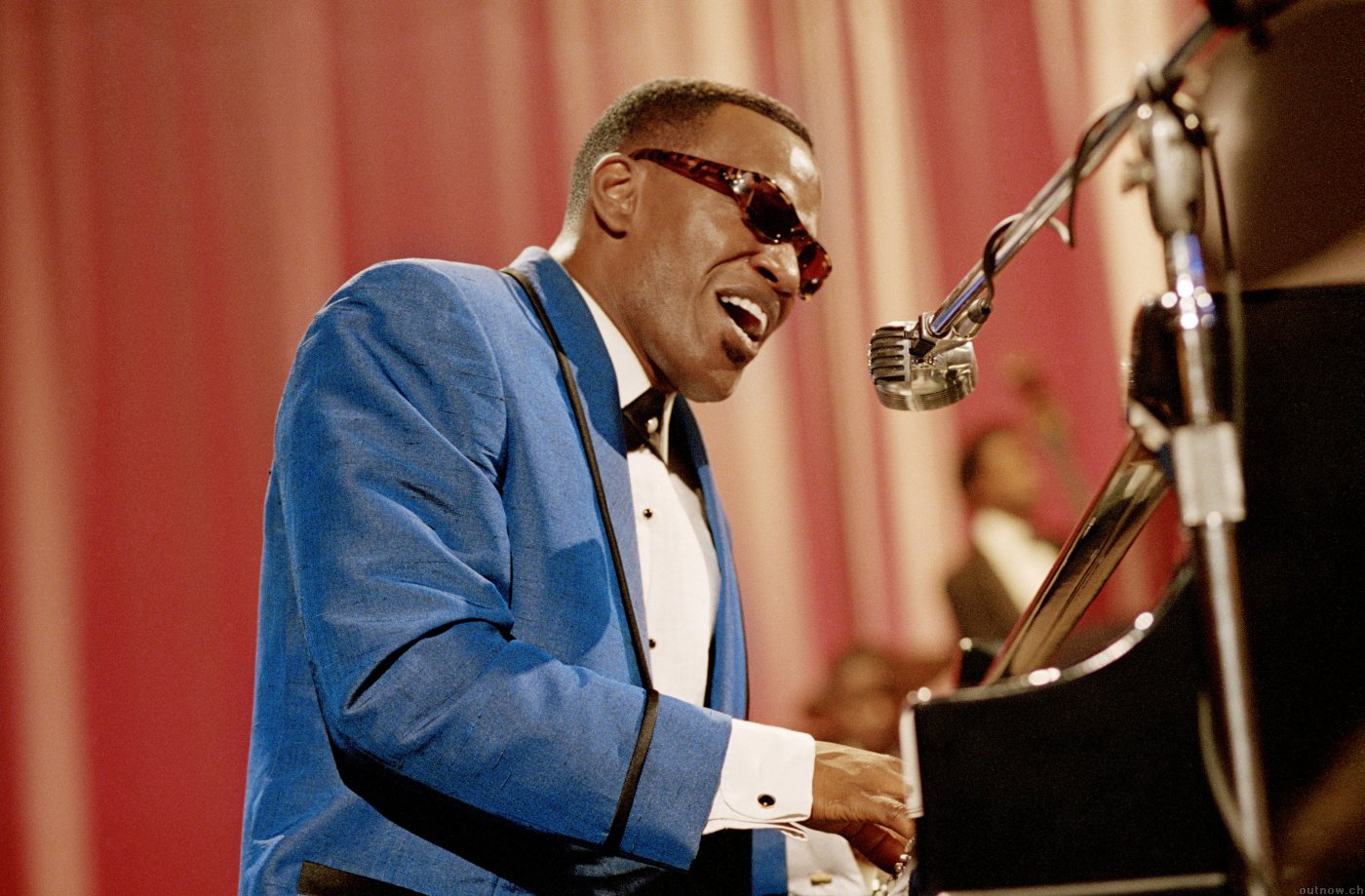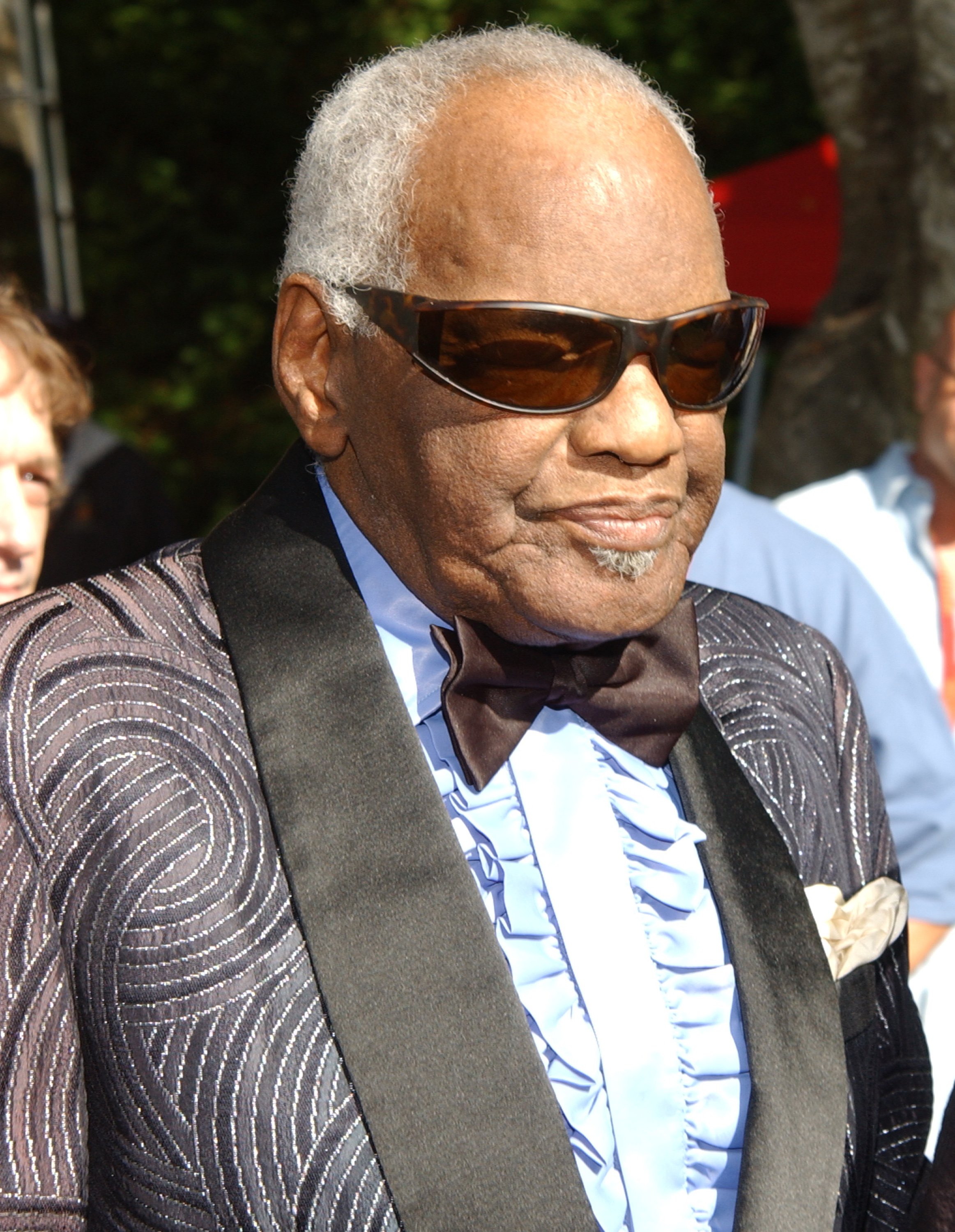Ray Charles: The Untold Story Of A Musical Genius
Can one truly encapsulate the essence of a musical titan? Ray Charles Robinson, a name synonymous with soul, innovation, and an indomitable spirit, forever altered the landscape of music, leaving an imprint that continues to resonate across generations. His journey, marked by adversity and triumph, offers a profound testament to the power of human potential.
Ray Charles's life story is more than just a biography; it's a narrative woven with threads of hardship, resilience, and ultimately, genius. Born into the throes of the Great Depression in the small town of Albany, Georgia, his early years were defined by poverty and struggle. Accounts pinpoint his birthdate as September 23, 1930, although some records suggest a possible discrepancy, indicating 1932. Regardless, the impact he would have on the world was undeniable. His father, often noted as Bailey Robinson, engaged in various trades, from railroad mechanic to handyman, while his mother, Aretha Williams (or Robinson, depending on the source), toiled tirelessly in a sawmill and supplemented the family income by taking in laundry. The family's circumstances were meager, a reality mirrored by countless others during that era. His father was also married to Mary Jane Robinson. The weight of providing for Ray and his younger brother, George, often fell solely on Aretha's shoulders, especially as Bailey's presence became increasingly sporadic, eventually leading to his departure. However, these early hardships would serve as the crucible in which Ray Charles's extraordinary talent would be forged.
| Category | Information |
|---|---|
| Full Name | Ray Charles Robinson |
| Birth Date | September 23, 1930 |
| Birth Place | Albany, Georgia, USA |
| Death Date | June 10, 2004 |
| Genres | Soul, R&B, Jazz, Blues, Country |
| Occupations | Singer, Songwriter, Pianist, Composer, Arranger |
| Instruments | Vocals, Piano, Organ, Saxophone |
| Years Active | 1947-2004 |
| Labels | Atlantic, ABC-Paramount, Warner Bros., Concord |
| Spouse(s) | Eileen Williams (m. 19511952), Della Beatrice Howard Robinson (m. 19551977) |
| Children | 12 |
| Awards | 17 Grammy Awards, Grammy Lifetime Achievement Award, National Medal of Arts |
| Influences | Nat King Cole, Charles Brown, Louis Jordan |
| Official Website | RayCharles.com |
A pivotal moment arrived when the family relocated to Greenville, Florida, a town even smaller than Albany. It was here, amidst the humble surroundings, that Ray's prodigious musical talent began to blossom. The seeds of his musical genius were sown in the Mount Olive Missionary Baptist Church, where he absorbed the fervent rhythms and soulful melodies of gospel music. This early exposure would profoundly shape his artistic sensibility, imbuing his later works with an unmistakable spiritual depth. His mother, recognizing his innate aptitude, encouraged his exploration of music, fostering a nurturing environment that allowed his talent to flourish. It was also in Greenville that tragedy struck, forever altering the course of Ray's life. At the tender age of five, he began to experience a gradual loss of vision, a condition that would ultimately lead to complete blindness by the age of seven. The precise cause of his blindness remains shrouded in mystery, with some accounts attributing it to glaucoma, while others suggest an infection. Regardless of the etiology, the loss of his sight presented an immense challenge, one that would test his resilience and determination.
- Filme Online Schauen Die Besten Streamingdienste Im Vergleich
- Filmy4wap Neue Filme Alternativen Legal Filme Streamen
Despite this profound adversity, Ray's spirit remained unbroken. He enrolled in the Florida School for the Deaf and the Blind in St. Augustine, where he received a formal education and honed his musical skills. At the school, he learned to read and write Braille, mastering not only the basics of literacy but also the intricate system of musical notation. It was here that he truly immersed himself in the world of music, studying classical piano, organ, and saxophone. He devoured the works of the great composers, absorbing their techniques and styles, while simultaneously exploring the vibrant sounds of jazz, blues, and country music. His time at the school was transformative, providing him with the tools and knowledge he needed to pursue his musical ambitions. However, it was also marked by personal loss. His younger brother, George, tragically drowned when Ray was just a young boy, a devastating event that left an indelible scar on his heart. The loss of his brother, coupled with his own visual impairment, instilled in him a deep sense of empathy and a profound appreciation for life.
Upon leaving the school, Ray embarked on a remarkable journey, venturing into the world as a young, blind musician. He initially eked out a living playing piano in various bands and clubs throughout Florida. Navigating the challenges of segregation and discrimination was an everyday reality, but his talent and unwavering determination propelled him forward. He meticulously crafted his sound, drawing inspiration from his musical heroes, including Nat King Cole, Charles Brown, and Louis Jordan. He meticulously studied their techniques, emulating their vocal styles and instrumental arrangements, while simultaneously striving to develop his unique voice. During this period, he adopted the moniker "Ray Charles," dropping his last name to avoid confusion with the boxer Sugar Ray Robinson. This marked the beginning of his ascent, as he began to forge his identity as a distinct musical force.
In 1947, Ray Charles made a pivotal decision that would alter the course of his career. He boarded a bus and headed north to Seattle, Washington, a city renowned for its burgeoning jazz scene. Seattle provided a fertile ground for his musical aspirations, allowing him to hone his skills and experiment with new sounds. He quickly established himself as a talented pianist and vocalist, performing in various nightclubs and venues throughout the city. It was in Seattle that he formed his first trio, the McSon Trio, which later became known as the Maxim Trio. The trio's repertoire consisted of a blend of jazz standards, blues numbers, and original compositions, showcasing Ray's versatility and musical prowess. He signed his first recording contract with Swing Time Records, releasing a series of singles that gained regional popularity. These early recordings revealed his distinct vocal style, characterized by its soulful delivery and emotive phrasing. He was beginning to find his voice, both literally and figuratively, as he navigated the complexities of the music industry.
- Filmywap Jaat 2025 Infos Download Alternativen News
- Vegamovies Alternativen Filme Serien Legal Streamen
The early 1950s marked a period of significant growth and evolution for Ray Charles. He relocated to Los Angeles, California, seeking broader opportunities and a wider audience. He signed with Atlantic Records, a label known for its commitment to rhythm and blues music. Under the guidance of Atlantic Records, Ray Charles began to experiment with a groundbreaking fusion of gospel, blues, and jazz, a sound that would ultimately become known as "soul music." His early Atlantic recordings, such as "Mess Around" and "It Should've Been Me," showcased his innovative approach, blending secular lyrics with gospel-infused melodies and rhythms. This fusion of sacred and secular elements was revolutionary, pushing the boundaries of popular music and paving the way for a new generation of artists. Ray Charles was not simply creating music; he was forging a new genre.
In 1955, Ray Charles achieved his first major breakthrough with the release of "I Got a Woman," a song that would become an instant classic and solidify his status as a rising star. "I Got a Woman" was a groundbreaking composition, blending gospel fervor with a bluesy sensibility. The song's infectious rhythm, catchy melody, and Ray's impassioned vocals resonated with audiences across racial lines, marking a significant step toward crossover success. This song catapulted him into the national spotlight, earning him widespread recognition and critical acclaim. It was a pivotal moment in his career, signaling the arrival of a major musical force.
Throughout the late 1950s and early 1960s, Ray Charles continued to push the boundaries of his music, releasing a string of hit records that further cemented his legacy. Songs such as "Hallelujah I Love Her So," "What'd I Say," and "Georgia on My Mind" became iconic anthems, showcasing his unique blend of soul, R&B, and jazz. "What'd I Say," with its call-and-response vocals and electrifying instrumental arrangement, became a signature song, exemplifying his innovative approach to music. "Georgia on My Mind," a heartfelt ballad, became his signature song and an enduring tribute to his home state, later becoming the official state song of Georgia. His music transcended genres, appealing to audiences of all ages and backgrounds. He was a true musical innovator, constantly experimenting with new sounds and pushing the boundaries of popular music.
In 1959, Ray Charles made a bold and controversial move, signing with ABC-Paramount Records. This decision marked a significant shift in his career, granting him greater creative control and financial independence. Under ABC-Paramount, he continued to experiment with his music, exploring new genres and expanding his artistic horizons. He released a series of albums that showcased his versatility, including "The Genius of Ray Charles," a collection of jazz standards, and "Modern Sounds in Country and Western Music," a groundbreaking album that blended country music with soul and R&B. "Modern Sounds in Country and Western Music" was a bold and audacious project, defying the conventions of both country and R&B music. It was met with initial skepticism, but it quickly became a commercial and critical success, further solidifying his status as a musical visionary. This album demonstrated his ability to transcend genres and appeal to a wide range of audiences.
Throughout his career, Ray Charles faced numerous challenges, including battles with drug addiction and racial discrimination. He openly acknowledged his struggles with heroin addiction, undergoing treatment and eventually overcoming his dependence. His honesty about his addiction helped to break down stigmas and inspire others to seek help. He was a vocal advocate for civil rights, using his music and platform to promote equality and justice. He refused to perform in segregated venues, risking his career to stand up for his principles. His commitment to social justice made him a role model for many, both within and outside the music industry.
Ray Charles's influence on music is immeasurable. He is widely regarded as one of the most influential musicians of the 20th century, shaping the sound of soul, R&B, and rock and roll. His innovative fusion of gospel, blues, and jazz paved the way for countless artists, including Aretha Franklin, Stevie Wonder, and countless others. His music continues to inspire generations of musicians, and his legacy as a musical pioneer remains secure. He received numerous awards and accolades throughout his career, including 17 Grammy Awards, a Grammy Lifetime Achievement Award, and the National Medal of Arts. He was inducted into the Rock and Roll Hall of Fame in 1986, cementing his place among the pantheon of musical greats. The Robinson Foundation for Hearing Disorders, Inc., later changed its name to the Ray Charles Foundation, a testament to his commitment to philanthropy and his desire to make a positive impact on the world.
Ray Charles Robinson, the boy from Albany, Georgia, who overcame poverty, blindness, and addiction to become a musical icon, passed away on June 10, 2004, leaving behind a legacy that will endure for generations to come. His music continues to resonate with audiences around the world, reminding us of the power of resilience, the transformative potential of music, and the enduring spirit of soul.
- Filme Streamen Die Besten Filme Alternativen Zu Pr Movies
- Vegamovies Alternativen Filme Online Finden Streamen

Ray Charles Robinson Jr. Meet Son Of Late Ray Charles VergeWiki

September 23rd in African American History Ray Charles Robinson Today in African American

Understanding The Life And Legacy Of Ray Charles And His Wife